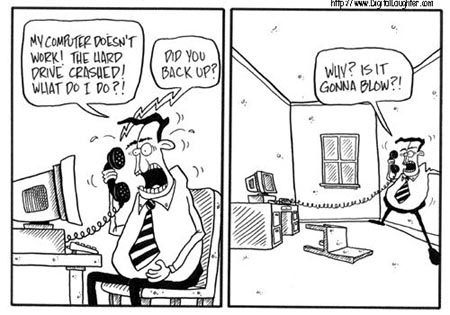You are using an out of date browser. It may not display this or other websites correctly.
You should upgrade or use an alternative browser.
You should upgrade or use an alternative browser.
[Image] The Picture and GIF thread
- Thread starter kapulA
- Start date
Someone already has. It is hilarious.
Spoiler!
Yes, brill. If only the author's predilection for polysyllabic words that he not entirely comprehends had not betrayed his noble attempt (I am referring to sixth post down; "She surmises the car" - say what? she supposes/suspects/guesses/hypothesises, to use a few of the synonyms, the car? "scrutinises", perhaps, yes, but not "surmises"). Cha-cha-cha.
Upvote
0
Actually, no. Surmises is OK. Although you won't find it in any online dictionary*, I would say that the word is commonly enough used to mean "Be, or become, aware of (s.t.)" that this is acceptable.
The writer is making a pretty good pass at the kind of English that a social sciences or literature graduate in an Anglophone country would consider appropriate to the task.
p.s. It is also f*cking funny.
*Yes, I DID try.
The writer is making a pretty good pass at the kind of English that a social sciences or literature graduate in an Anglophone country would consider appropriate to the task.
p.s. It is also f*cking funny.
*Yes, I DID try.
Last edited:
Upvote
0
That picture reminds me of my English classes, where the teacher puts more thought into the book than the actual author did.
Upvote
0
That picture reminds me of my English classes, where the teacher puts more thought into the book than the actual author did.
Agreed. That was so annoying in high school because only the teacher's idea of the meaning was correct. At least in college we could have a difference of opinion and not be wrong.
I also remember an interview with Ian Anderson of Jethro Tull about "Aqualung" and how all the critics tried to come up with the meaning behind it all. He just said that the group wrote some heavy songs and threw some lighter songs inbetween them and that was it. Later, because of the critics, the came up with "Thick as a Brick"
Upvote
0
Actually, no. Surmises is OK. Although you won't find it in any online dictionary*, I would say that the word is commonly enough used to mean "Be, or become, aware of (s.t.)" that this is acceptable.
The writer is making a pretty good pass at the kind of English that a social sciences or literature graduate in an Anglophone country would consider appropriate to the task.
p.s. It is also f*cking funny.
*Yes, I DID try.
I agree with all of the above - save for the initial paragraph. That was enlightening, albeit I still have to doubt the validity of using "surmise" in that context (and without an SVO clause to follow the object, "the car").
I also did try to find the thing in an online dictionary (I always use dictionary.com, when I have to) and it does not come up, it is true.
I remember you stating elsewhere, Nestor, that you consider language to be a living, evolving organism (the descriptive vs. prescriptive dilemma). So do I, evidence for that abounds.
However, I believe we should distinguish between correct use, innovative use and corruptive use. It is true, through consistent misuse (if not too strong a word) words may gain new meanings and the acceptable contexts in which they may be used may change. My, perhaps, favourite example is "anon", the meaning of which shifted from (and I base this off the dictionary referenced earlier) "immediately" circa 1000 A.D. to "in a moment" circa 1500 A.D., through centuries of (deliberate or not) cunctatorship (eugh, what a word).
Another example I can think of readily is "prolific" and its, what appears to be, frequent (mis)use in the sense of "successful". Again, you won't find it in a dictionary.
But does that mean we should accept it? As someone for whom English is not a native language, I try to pay attention to the correct use of words in order to avoid confusion. Furthermore, I cannot fail but to think that the more lax our standards of the correct use of words become, the more we risk that this, or some other, language will baulk under the combined weight of semantic misuse. It's okay (and a lot of fun, I know I am guilty of it quite a lot) to be creative with language, but where do we draw the line?
In an age of global communication in which English is the, oh irony, lingua franca, I guess I am concerned for us not to lose mutual intelligibility (at least when using, let's call them, "more advanced" words, an example of which are Latin borrowings; a "dog" is always - hopefully - going to be taken to semantically denote, well, a dog).
And to be perfectly frank, I didn't really buy into that thing with "surmise", though I appreciate your native input. I guess that should I come across more such examples, I will have to accept it.
That is all, removing ramrod.
Upvote
0
...this is the "PICTURE and GIF thread".... and although pictures may be worth 1000 words, it DOESN'T mean you can just post 1000 words and not pictures!:IS2:
Upvote
0
Upvote
0
Upvote
0
Upvote
0
Upvote
0























